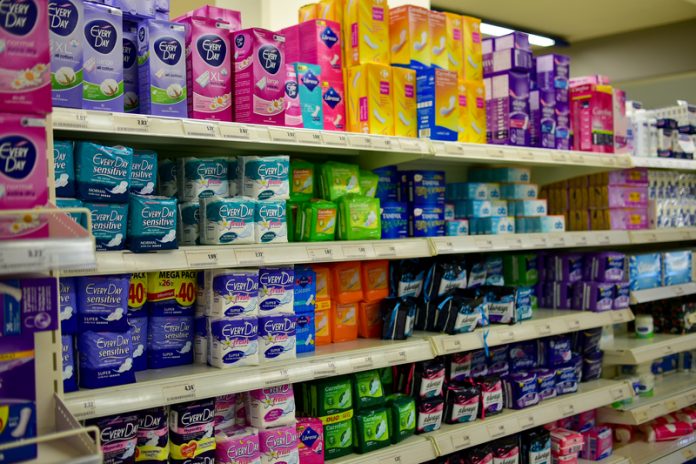Sian Walkling, Marketing Manager, Initial Washroom Hygiene, discusses the need to tackle period poverty by creating a comfortable and dignified washroom for women
Bristol became the first UK city to host a ‘period poverty summit’ in late January, in a bid to tackle the country’s ongoing, and increasingly high-profile, battle to ensure women across the country can afford and have access to, basic sanitary products. It is estimated that 137,000 girls miss at least one day of school per year in the UK due to cost or a lack of access to sanitary products.
The good news is that several initiatives are underway to try to tackle this national issue. Companies such as ‘Always’ have launched social campaigns to show the impact period poverty is having on girls at school. And in August last year, Scotland became the first country to offer free sanitary care products in all schools, colleges and universities. Following suit, several UK councils, including Bristol, Leeds, Nottingham and Brighton have pledged their own plans to put an end to this issue.
Considering a free sanitary service
One way that schools, councils and companies are working to reduce period poverty is by viewing sanitary products as a ‘washroom essential’, in the same way, soap and toilet paper are. This means providing complimentary tampons and sanitary towels in the washroom, either through a basket in the communal area or via a small dispenser within the cubicle. The dispenser option, in particular, gives women the opportunity to dispense products free and in private. Housed in a discrete, compact unit, typically located alongside the toilet roll holder, washroom users who cannot afford them or who have simply been caught unaware are provided with easy and free access to sanitary products at the point of need.
Sadly, period shaming has also negatively impacted attendance rates in schools; providing these private dispensers can allow girls to feel more comfortable during what can be an emotional time and ensure they do not miss important learning opportunities. Initial Washroom Hygiene is currently working with a local authority in Wales that is looking to install free-vend units at each of their Health Board sites across the country.
Discrete disposal
Although the main issue of period poverty stems from a lack of access to products, attention must also be placed on providing discrete appropriate hygienic disposal service – a vital consideration for the maintenance of a clean and pleasant washroom environment. Feminine hygiene units are available in a range of colours and styles, including manual, pedal, and automatic, and have been designed to sit conveniently beside the toilet. You can also find some which contain an anti-microbial solution to help prevent the spread of germs, or that emit a pleasant citrus fragrance to control any bad odours.
Ensuring you provide the right facilities within the washroom cubicles will also encourage proper waste disposal. Despite popular belief, tampons are not easily biodegradable and are one of the main causes of waste pipes becoming blocked. If no disposal units are available, washroom users may feel like they have no choice but to flush sanitary products down the toilet. Hygiene units with automatic or no-touch capabilities help to make sanitary disposal discreet, quick and easy, ensuring users can dispose of their waste in the most ecological way possible, rather than flushing potentially harmful waste down the toilet.
By employing a feminine hygiene waste disposal service, councils can help to dispose of sanitary waste in a secure, sensitive and environmentally friendly way. This is not only important for the wellbeing of employees or other washroom users but helps to ensure waste is being disposed of in line with national health and safety legislation.
In this day and age, no school or work days should be missed because of a lack of sanitary products. Thankfully, local governments, businesses and brands are increasingly aware of the services they can put in place to tackle period poverty head-on. Offering free sanitary hygiene products and appropriate disposal is a small, easy step that can prevent this from happening in the future.




![Europe’s housing crisis: A fundamental social right under pressure Run-down appartment building in southeast Europe set before a moody evening sky. High dynamic range photo. Please see my related collections... [url=search/lightbox/7431206][img]http://i161.photobucket.com/albums/t218/dave9296/Lightbox_Vetta.jpg[/img][/url]](https://www.openaccessgovernment.org/wp-content/uploads/2025/04/iStock-108309610-218x150.jpg)






